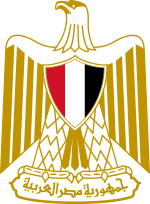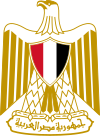
Beheira Governorate is a coastal governorate in Egypt. Located in the northern part of the country in the Nile Delta, its capital is Damanhur.

Faiyum Governorate is one of the governorates of Egypt in the middle of the country. Its capital is the city of Faiyum, located about 81 mi (130 km) south west of Cairo. It has a population of 3,848,708 (2020).

Sharqia Governorate is the 3rd most populous of the governorates of Egypt. Located in the northern part of the country, its capital is the city of Zagazig.

Asyūṭ Governorate is one of the many governorates of Egypt. It stretches across a section of the Nile River. The capital of the governorate is the city of Asyut.

Sohag Governorate is one of the governorates of Egypt. It is located in the southern part of the country, and covers a stretch of the Nile Valley. Since 1960, its capital has been the city of Sohag. Prior to that, the capital was the city of Girga and the name of the governorate was Girga Governorate.
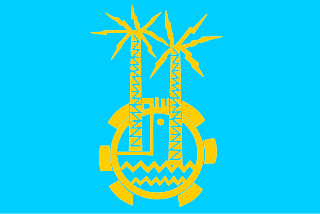
Aswān Governorate is one of the governorates of Egypt. The southernmost governorate in Upper Egypt, covering most of Lake Nasser. The Governorate's capital is Aswan.
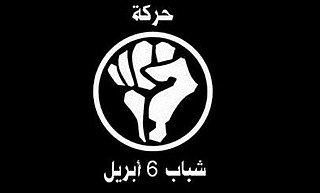
The April 6 Youth Movement is an Egyptian activist group established in Spring 2008 to support the workers in El-Mahalla El-Kubra, an industrial town, who were planning to strike on 6 April.

Dakahlia Governorate is an Egyptian governorate lying northeast of Cairo. Its area is approximately 3,500 km². Its capital is Mansoura.

Presidential elections were held in Egypt in 2012, with the first round on 23 and 24 May 2012 and the second on 16 and 17 June. The 2012 Egyptian Presidential election was the first democratic presidential election of Egypt’s history. The Muslim Brotherhood declared early 18 June 2012, that its candidate, Mohamed Morsi, won Egypt's presidential election, which would be the first victory of an Islamist as head of state in the Arab world. It was the second presidential election in Egypt's history with more than one candidate, following the 2005 election, and the first presidential election after the 2011 Egyptian revolution which ousted president Hosni Mubarak, during the Arab Spring. However, Morsi's presidency was brief and short-lived, and he later faced massive protests for and against his rule, only to be ousted in a military coup in July that year.

National Association for Change(Arabic: الجمعية الوطنية للتغيير) is a loose grouping of the various Egyptian of all political affiliations and religion, men and women, including representatives of civil society and young people aims to change Egypt. There was general agreement on the need to unite all the voices calling for change within a National Assembly. Mohamed ElBaradei is in-charge of the National Association for Change. The movement aims for general reforms in the political scene and achieving some of those procedures and guarantees necessitates the amendment of articles 76, 77, and 88 of the constitution as soon as possible. Worth mentioning is that the banned political group the Muslim Brotherhood were represented by one of their key figures who attended the meeting however their stand in accepting a non-member of their group as a candidate is yet unclear. It is also unknown whether Amr Moussa the head of the Arab League who met with Elbaradei a day earlier will be part of the new movement. The goal of the group is to bring about political reform based on democracy and social justice.

The Free Egyptians Party is an Egyptian liberal party, founded after the 2011 Egyptian revolution. It supports the principles of a liberal, democratic, and secular political order in Egypt. The Free Egyptians Party was the largest party in the House of Representatives. The party is a founding member of Al Hurriya Liberal Network.

The Egyptian Constituent Assembly of 2012 (CA) is the committee for the creation of a new Constitution of Egypt. The Muslim Brotherhood had announced that the Constituent Assembly would vote on the constitution on 29 November 2012. The Constituent Assembly will be able to avoid its possible dissolution by voting on the constitution earlier than the release of a ruling by the Supreme Constitutional Court on the assembly's legitimacy; the ruling was expected to occur on 2 December 2012. The court has postponed the verdict in response to protests. The Constituent Assembly approved the constitution on 29 November 2012; more than 16 hours were spent voting on its articles.
Following the 2011 Egyptian revolution, the Muslim Brotherhood in Egypt became one of the main forces contending for political power in Egypt against the Supreme Council of the Armed Forces (SCAF) and other established centers of the former Hosni Mubarak regime.
Salah Abdel Maqsoud was the minister of information of Egypt as part of the Qandil Cabinet.
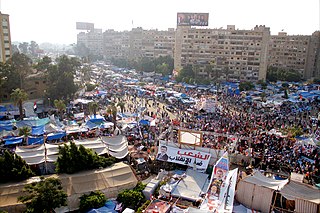
The 2013 Egyptian coup d'etat took place on 3 July 2013. Egyptian army chief General Abdel Fattah al-Sisi led a coalition to remove the democratically elected President of Egypt, Mohamed Morsi, from power and suspended the Egyptian constitution of 2012. The move came after the military's ultimatum for the government to "resolve its differences" with protesters during widespread national protests. The military arrested Morsi and Muslim Brotherhood leaders, and declared Chief Justice of the Supreme Constitutional Court Adly Mansour as the interim president of Egypt. The announcement was followed by demonstrations and clashes between supporters and opponents of the move throughout Egypt.

The 30 June protests occurred in Egypt on 30 June 2013, marking the one-year anniversary of Mohamed Morsi's inauguration as president. The events ended with the 2013 Egyptian coup d'état after mass protests across Egypt demanding the immediate resignation of the president. The rallies were partly a response to Tamarod, an ostensibly grassroots movement that launched a petition in April 2013, calling for Morsi and his government to step down. Tamarod claimed to have collected more than 22 million signatures for their petition by June 30, although this figure was not verified by independent sources. A counter-campaign in support of Morsi's presidency, named Tagarod, claimed to have collected 26 million signatures by the same date, but this figure was also unverified and not mentioned nearly as much Tamarod's in the media, with no reliable sources repeating it. The movements in opposition to Morsi culminated in the June 30 protests that occurred across the country. According to the Egyptian military, which calculated the number of protesters via helicopter scans of demonstration perimeters across the country, the June 30 protests had 32 million protesters, making them "the biggest protests in Egypt's history." However, independent observers raised concerns that the Egyptian government exaggerated the actual number of anti-Morsi protestors, with some research determining that only around one to two million people protested across the country against Morsi.

On 14 August 2013, Egyptian police and army forces under the command of General Abdel Fattah el-Sisi raided two camps of protesters in Cairo: one at al-Nahda Square and a larger one at Rabaa al-Adawiya Square. The two sites had been occupied by supporters of President Mohamed Morsi, who had been removed from office by the military a month earlier in the 2013 Egyptian coup d'état. The camps were raided after initiatives to end the six-week sit-ins by peaceful means failed and as a result of the raids, the camps were cleared out within hours. The raids were described by Human Rights Watch as crimes against humanity and "one of the world's largest killings of demonstrators in a single day in recent history". According to Human Rights Watch, a minimum of 904 people were killed with strong evidence to suggest more likely at least 1,000 died during the dispersal. However, according to the Egyptian Health Ministry, 595 civilians and 43 police officers were killed and at least 3,994 were injured. Later, the official Forensic Medical Authority stated only 8 police officers were killed and Egypt's National Council for Human Rights stated at least 624 civilians were killed. The Muslim Brotherhood and the National Coalition for Supporting Legitimacy stated the number of deaths from the Rabaa al-Adawiya Mosque sit-in alone was about 2,600. The total casualty count made 14 August the deadliest day in Egypt since the 2011 Egyptian revolution which had toppled former President Hosni Mubarak. Several world leaders denounced the violence during the sit-in dispersals.
The Rabaa or Rabbi'ah sign - often stylized as R4BIA or less commonly as Rab3a, is a hand gesture and a sign that first appeared in late August 2013, thought to have originated from Turkey and used in social media and protest marches in Egypt. It is used by the Muslim Brotherhood and its supporters in Egypt in the wake of the overthrow of Mohamed Morsi, which occurred after anti-government protests calling for his removal. On July 9, 2014, a Brotherhood-affiliated organization declared August 14, the day when the sit-ins were dispersed, "World Rabia Day," in an attempt to garner support across numerous countries.
The April 6 Youth Movement Democratic Front is an Egyptian activist group established in spring 2011 after the differences in the April 6 Youth Movement, led by Ahmed Maher. Differences in the Movement started to appear in April when leaders of the movement announced they would transform it into a NGO or foundation on its anniversary. TV host and founder, Abd Alrahman Ezz, of April 6 "Democratic Front", told Ahram Online that the decision was taken without consultation. "It was taken with no respect for democracy, for the majority," Ezz says. The lack of internal democracy is the main reason why some left the mainstream movement, led by Ahmed Maher, forming the Democratic Front, Ezz says most of the old members joined the Democratic Front. On August 5, a group of April 6 Youth Movement members in Alexandria announced that they had joined the Democratic Front, leaving the Ahmed Maher front due to what they considered discrimination in decision making processes.
The 2019 Egyptian protests were mass protests in Cairo, Alexandria, Damietta and other cities on 20, 21 and 27 September 2019 in which the protestors called for President Abdel Fattah el-Sisi to be removed from power. Security forces responded with tear gas, rubber bullets and, as of 23 October 2019, 4300 arbitrary arrests had been made, based on data from the Egyptian Center for Economic and Social Rights, the Egyptian Commission for Rights and Freedoms, the Arabic Network for Human Rights Information, among which 111 were minors according to Amnesty International and the Belady Foundation. Prominent arrestees included human rights lawyer Mahienour el-Massry, journalist and former leader of the Constitution Party Khaled Dawoud and two professors of political science at Cairo University, Hazem Hosny and Hassan Nafaa. The wave of arrests was the biggest in Egypt since Sisi formally became president in 2014.
